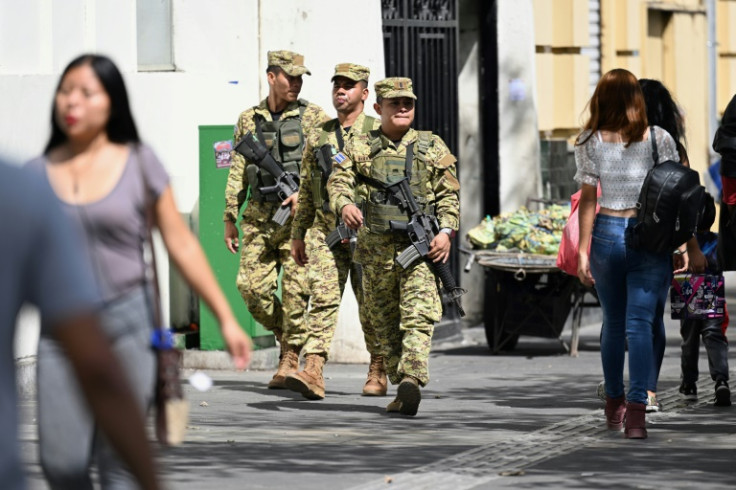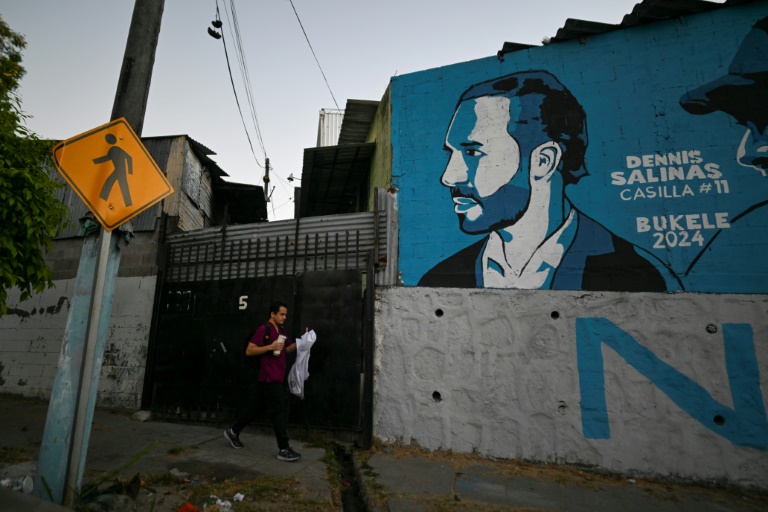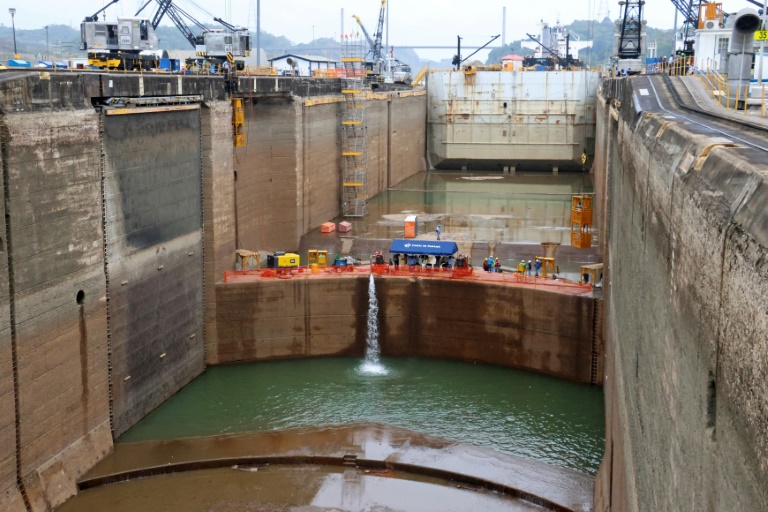El Salvador goes to the polls Sunday with victory for gang-busting President Nayib Bukele in the bag and the only question how many seats his party will claim in a new-look parliament.
Bukele, 42, enjoys approval ratings hovering around 90 percent and polls as Latin America’s most popular leader, credited with slashing the country’s homicide rate and restoring peace to a violence-weary nation.
His government has rounded up more than 75,000 gangsters — real and suspected — since a state of emergency came into effect in March 2022.
Thousands are held in a brand-new prison — plugged as the largest in the Americas — which the president had built in a matter of months.
And last year, the country that was once one of the most dangerous in the world saw the murder rate plummet to its lowest level in three decades — far below the world average.
As a result, Bukele is all but assured victory in Sunday’s first voting round despite concerns about rights violations, creeping authoritarianism and grumblings about the economy.
“He has been effective. He cleaned up all those places (of gangs) where nobody thought it could be done,” retired architect Claudia Del Velasco, 72, told AFP in the capital San Salvador, “excited” about casting her vote.
“One feels safe now to visit places you haven’t seen for years. Even to discover” new ones, she added, though the economy “can improve.”
El Salvador’s fearsome gangs took some 120,000 civilian lives in three decades, according to the government.
With little need to campaign for himself, Bukele has instead focused on beating the drum for his party, Nuevas Ideas, which holds 56 seats in the current 84-member legislative assembly.
The overall number of seats has been reduced to 60 under a Bukele-led reform, in a move critics say will make it much harder for smaller parties to get enough votes to get in.
In 2022, the legislature also approved a law allowing Salvadorans to vote abroad.
Under that reform, all foreign ballots — which tend to favor Bukele — will count towards the department of San Salvador which has the most undecided seats, according to the Washington Office on Latin America (WOLA), an NGO promoting human rights.
WOLA Central America director Ana Maria Mendez Dardon told AFP the political opposition could all but “disappear” in this election.
“There is a risk of having a one-party system in El Salvador,” she said.
In a message on X this week, Bukele urged Salvadorans to vote en masse for Nuevas Ideas.
“Our country has changed, nobody can deny it. Our job this Sunday is to ensure that these changes are forever,” he said.
Activists say many innocents — including minors — have been caught up in the anti-gang dragnet, locked up in inhumane conditions, even subjected to torture.
In December, an Amnesty International report raised alarm over the “gradual replacement of gang violence with state violence.”
An apparent centralization of power is also a concern, with the Bukele-aligned parliament having replaced the country’s top judges and attorney general — both institutions he had clashed with.
The Supreme Court subsequently allowed him to seek reelection despite a constitutional ban on consecutive terms.
There are also concerns about worsening antagonism towards critics and independent media, and of opaque public accounting.
El Salvador’s ailing economy will be a major challenge for Bukele’s second term, with high public debt and the president’s investment of taxpayer money in bitcoin widely seen as a failed gambit.
Nearly 30 percent of Salvadorans lived in poverty in 2022, according to the UN’s Economic Commission for Latin America and the Caribbean.
Voting in El Salvador is not compulsory, and turnout was just over 50 percent in 2019, when Bukele won in the first round.
There are just over 6.2 million eligible voters worldwide, some 740,000 abroad — mainly in the United States, according to electoral authorities.
None of Bukele’s five rival candidates have even five percent of polled support.
Polls open at 7:00 am and will close 10 hours later.
AFP

AFP

AFP






